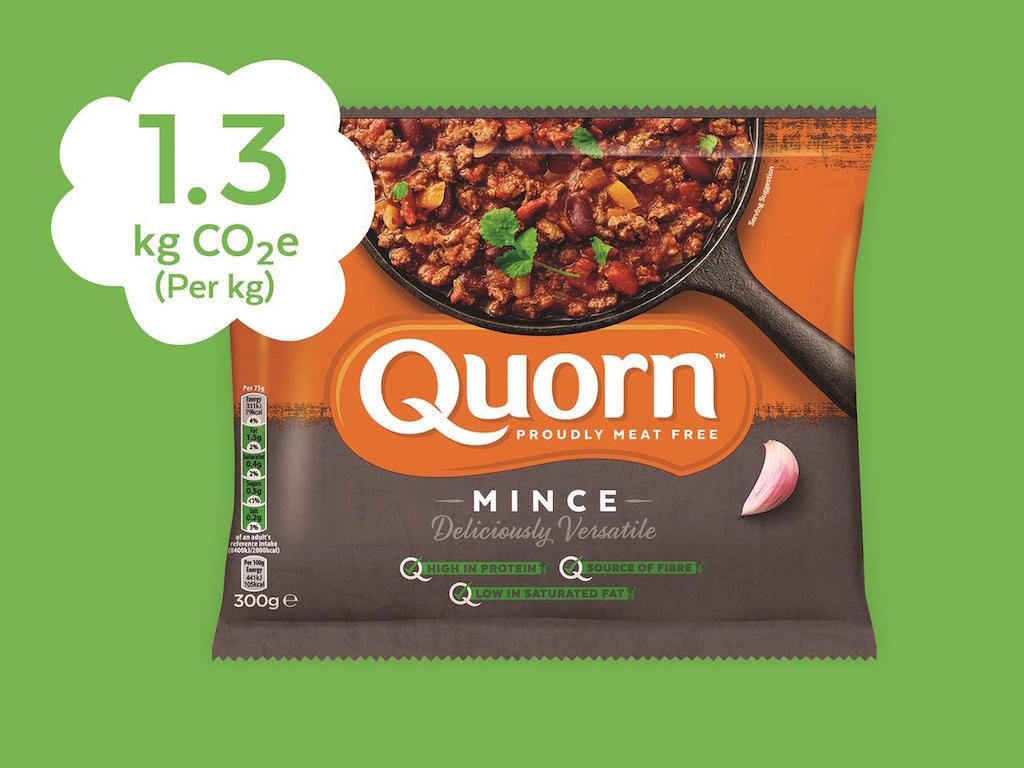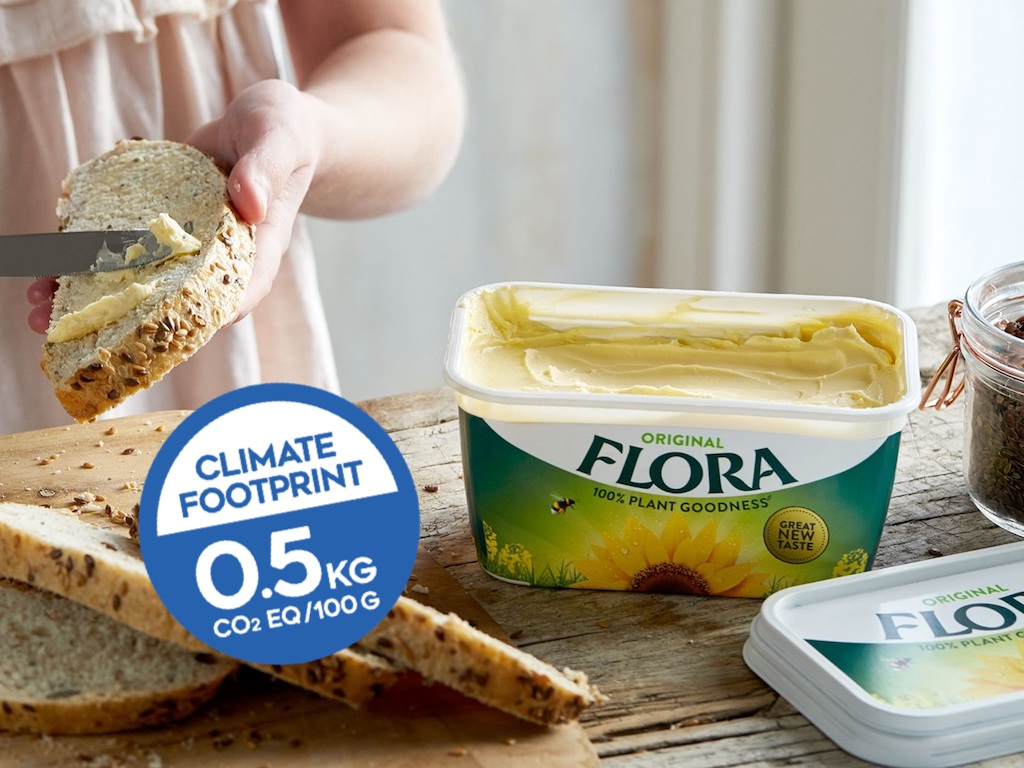4 Mins Read
Upfield, the parent company of multiple brands of plant-based spreads, butters and creams including Flora, Proactiv and Becel, has announced that it will be introducing on-pack carbon labelling to 100 million products by the end of 2021. Major food brands and restaurants have been embracing carbon labels in recent months as consumers begin coupling their dietary choices with its environmental impact, and are demanding the F&B industry for more low-carbon options.
The Flora spread owner has become the latest conglomerate to introduce carbon labels to its products, announcing last week that it will begin introducing on-pack carbon information to 100 million of its plant-based spreads, margarines, butters and creams by the end of next year. Country Crock Plant Butter in the U.S. and Flora in the U.K. and Ireland are among the first brands under Upfield to don the carbon labels, while Becel, Proactiv and Rama will start showing the labels in the following months.
Upfield, which is currently the world’s largest plant-based consumer packaged goods company with operations across 95 countries, says that the purpose of the labels is to help consumers make better-informed decisions when it comes to their food purchases.
“Today’s food labels already provide consumers with a lot of important information about ingredients, health benefits, allergens, storage and use. By adding carbon labels, consumers will also be able to understand the impact their food choices have on our climate,” said Dr. Jeanette Fielding, chief corporate affairs at Upfield.

“This initiative will support the transition to a more sustainable food system, using full disclosure and transparency as a key motivator for sustainable food choices. We call upon our industry peers to follow suit and implement on-pack carbon labelling now.”
The carbon footprint of the products across Upfield’s brand portfolio will be independently calculated by Swiss sustainability consultancy Quantis. A peer-reviewed life-cycle analysis was conducted across 21 markets in Europe and North America, and found that the company’s plant-based spreads and margarines have on average a 70% smaller carbon footprint when compared to conventional dairy butters.
The assessment also found that on average, Upfield’s plant-based dairy substitutes require half the amount of water and uses up two-thirds less land to produce.
Today’s food labels already provide consumers with a lot of important information about ingredients, health benefits, allergens, storage and use. By adding carbon labels, consumers will also be able to understand the impact their food choices have on our climate.
Dr. Jeanette Fielding, Chief Corporate Affairs at Upfield
“Sharing science-based environmental assessments is the only responsible way of communicating to consumers the climate impact of their food choices,” said Sally Smith, head of sustainability at Upfield.
Carbon labels have gained traction in recent months across the food industry, especially as consumers become more conscious of the environmental impact of their dietary choices. A recent G20 food footprint report by Oslo-based nonprofit EAT found that if the world’s largest economies minimised consumption of meat and dairy products, effectively switching to a flexitarian diet, as much as 40% of the total global carbon budget for food could be freed up.

Sharing science-based environmental assessments is the only responsible way of communicating to consumers the climate impact of their food choices.
Sally Smith, Head of Sustainability at Upfield
Earlier this year, meat substitute brand Quorn announced that it will begin rolling out low-carbon food labels on its best-selling products to show how many emissions consumers are saving by swapping out conventional animal proteins.
Soon after, Just Salad became the first U.S. restaurant chain to pledge to put carbon labels on every single one of its menu items, while doubling down its commitment to offer diners more plant-based meat and dairy meal options in a bid to help reduce its food footprint.
Beyond the food industry, global consumer goods giant Unilever has also committed to adopting front-of-pack carbon information, and says that it will show this data on every single one of its 70,000 products it manufactures across its entire inventory, from personal care items to household cleaning supplies. In fashion, eco footwear brand Allbirds has launched a carbon counter for every shoe in its sneaker collection, which will be shown online.
Lead image courtesy of Flora / Upfield / designed by Green Queen Media.




